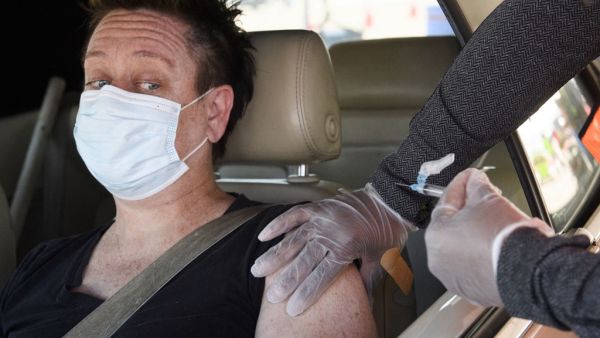It is unrealistic to think the world will be done with the pandemic by the end of the year, the World Health Organization warned.
WHO emergencies director Michael Ryan said it might however be possible to take the tragedy out of the crisis by reducing hospitalisations and deaths.
But the virus remains in control, he added, especially given that global new case numbers increased last week after six consecutive weeks of decline.
"It will be very premature, and I think unrealistic, to think that we're going to finish with this virus by the end of the year," Ryan told journalists.
"But I think what we can finish with, if we're smart, is the hospitalisations, the deaths and the tragedy associated with this pandemic."
Ryan said that vaccinating front-line health care workers and those most vulnerable to severe disease would "take the fear... out of the pandemic."
But he added that recent progress could not be taken for granted and "right now the virus is very much in control."
Brazilian states blast Bolsonaro over pandemic during worst phase yet
Disgruntled with President Jair Bolsonaro's handling of a pandemic in its most severe phase, 16 Brazilian governors accused the far-right leader of misleading the country and state authorities urged a nationwide curfew and closure of airports.
A year after Brazil's outbreak began, it has killed over 255,000 Brazilians and yet little more than 3% of the 210 million population has been vaccinated, raising criticism of Bolsonaro for failing to secure timely supplies of vaccines.
Last week was the deadliest yet for Brazil's outbreak, averaging nearly 1,200 confirmed deaths per day according to Health Ministry data.
Intensive care units in the country's main cities have reached critical occupancy levels not seen since the first peak of the pandemic last July.
State governors have again adopted restrictions limiting all but essential services, including in Brazil's capital city, Brasilia, which decreed a 24-hour lockdown.
Colombia 1st in Americas to get vaccines from UN programme
Colombia became the first country in the Americas to receive a shipment of coronavirus vaccines from the United Nations-backed Covax initiative, a program meant to ensure that the world’s most vulnerable people are inoculated but that has so far struggled to assist nations around the globe.
The arrival of 117,000 doses of the Pfizer-BioNTech vaccine to the South American country’s capital, Bogota, came a few days after the anniversary of the first case found in the region.
The Pan American Health Organization said it expects to in crease vaccine access in the region through the Covax effort each month, with plans to bring about 280 million vaccines to the Americas and the Caribbean by the end of the year.
States in US ease restrictions despite warnings
With the US vaccination drive picking up speed and a third formula on the way, states eager to reopen for business are easing restrictions despite warnings from health experts that the outbreak is far from over and that moving too quickly could prolong the misery.
The push to reopen comes as vaccine shipments to the states are ramping up. Nearly 20% of the nation’s adults, or over 50 million people, have received at least one dose of vaccine, and 10% have been fully inoculated 2.5 months into the campaign to snuff out the virus, according to the Centers for Disease Control and Prevention.
France, Germany struggle to sell AstraZeneca vaccine safety
French and German authorities are fighting to convince more people that AstraZeneca's vaccine is just as effective as others.
Stocks of the vaccines from the British-Swedish firm are going unused in both countries despite the desire to end a pandemic that has sparked a social and economic calamity on a scale not seen since World War II.
Only 273,000 doses of the jab developed by AstraZeneca and Oxford University have been administered in France out of 1.7 million received as of end-February, according to health ministry figures.
The poor take-up comes even as the target group for the jabs, health workers over 50 and people with other serious health risks, can get the vaccine directly from their doctor instead of waiting for appointments at vaccination centres.
Experts say it is also cheaper to produce than the two other vaccines approved for Europe, from Pfizer-BioNTech and Moderna, and does not require ultracold storage, making it easier to deploy.
But both France and Germany had refused to authorise AstraZeneca's vaccine for people over 65, fanning fears over its effectiveness.
This article has been adapted from its original source.








